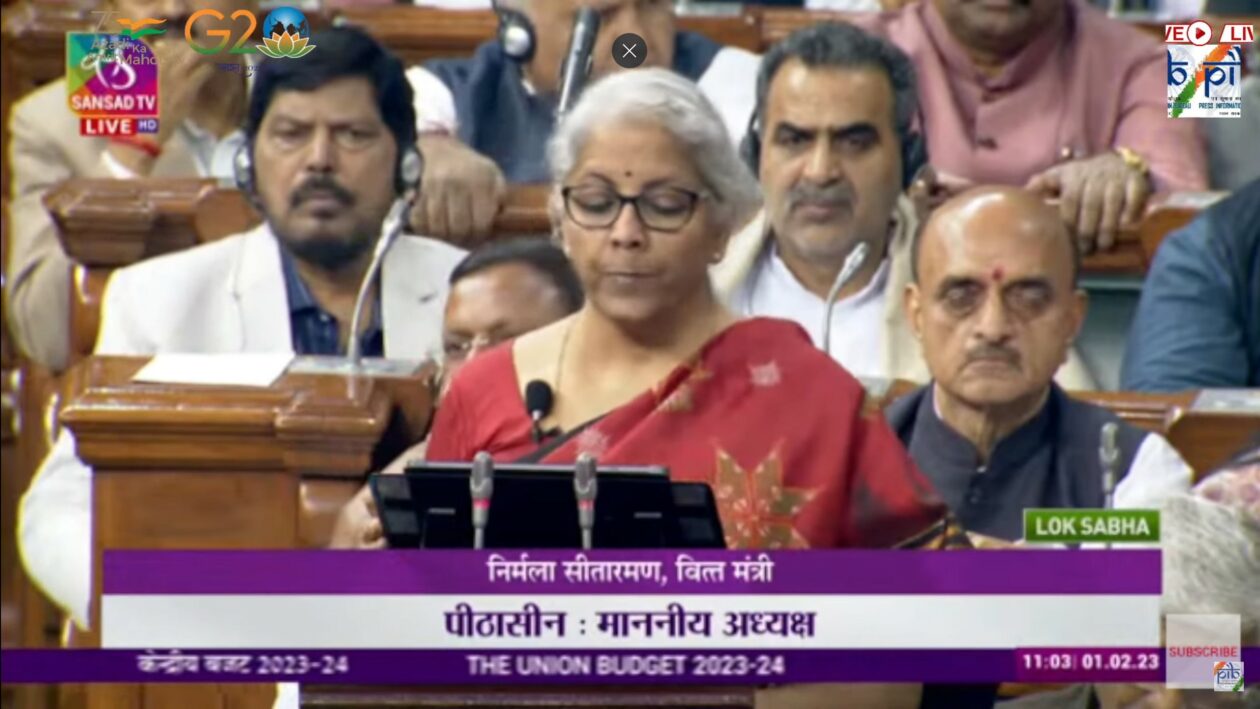India’s finance minister Nirmala Sitharaman ignored requests from the cryptocurrency industry to lower taxes on cryptocurrency trading as she presented the Budget 2023-24 on Wednesday in Parliament and made no mention of the digital asset class.
On April 1 last year, India imposed a 30% flat tax on all crypto income and on July 1 set a 1% tax deducted at source, or TDS, on all crypto trades above 10,000 Indian rupees (US$122).
The South Asian nation also does not allow crypto traders to offset losses against gains in other investments for tax purposes.
“The Indian Union Budget 2023 made no changes to existing crypto taxes, leaving Indian crypto companies on the ‘Stairway to Heaven,’” said local executive Rajagopal Menon in a tongue-in-cheek comment on the government snub. Menon is the vice president of WazirX, India’s largest crypto exchange by trading volume.
High taxes and a lack of a solid regulatory framework are stifling progress in the industry, he said.
“Trade volumes on Indian exchanges may remain flat at rock bottom. Last year was the worst year on record; any change will be for the better,” Menon said.
The taxes caused trading volumes to plunge as much as 90% on India’s crypto exchanges, slashing revenues from trading fees. Research by Esya Centre, a technology policy think tank in India, estimates US$3.8 billion may have shifted to offshore crypto exchanges from India between February and October 2022, as investors sought to avoid the tax levies.
Backfiring?
Sumit Gupta, the chief executive of Indian crypto exchange CoinDCX, said in an interview last week that India’s punishing tax rates on crypto is backfiring as investors are going offshore, depriving the country of tax revenue that could be earned if the rates were more reasonable.
India’s Economic Survey, which looks at trends in the country and helps establish resource allocation in the budget, for the first time put forward an analysis of the cryptocurrency industry in the country for 2022/23.
“The recent collapse of the crypto exchange FTX and the ensuing sell-off in the crypto markets have placed a spotlight on the vulnerabilities in the crypto ecosystem,” the report said.
“Crypto assets are self-referential instruments and do not strictly pass the test of being a financial asset because [they have] no intrinsic cash flows attached to them,” it said. “The geographically pervasive nature of the crypto ecosystem necessitates a common approach to the regulation of these volatile instruments,” it added.
The local cryptocurrency and blockchain industry had been hoping India would address the new asset class with clearer regulations, using the opportunity during its ongoing G20 Presidency to work with other countries.
“Regulatory void and lack of accountability tend to enable bad actors, and leave everyday users and investors with little to no legal recourse,” Ashish Singhal, co-founder and chief executive of Indian crypto exchange CoinSwitch, said on Twitter on Tuesday.
“With India’s G20 presidency, we hope 2023 would finally be the year to establish a framework for crypto.”
According to India Economic Affairs Secretary Ajay Seth, the discussion is “very much on” in the G20 platform.
“In fact, in the coming ministers’ meeting in February in Bangalore, we are organizing a seminar where [cryptocurrency] is getting into the discussion,” Seth told media organization CNBCTV18 on Wednesday after the budget announcement.
Seth said he expects to know what the policy approach should be by the end of 2023. He added that several countries, including India, believe cryptocurrencies as an asset class cannot be regulated by any one country or jurisdiction.
(Updates to add comments from the economic affairs secretary.)

